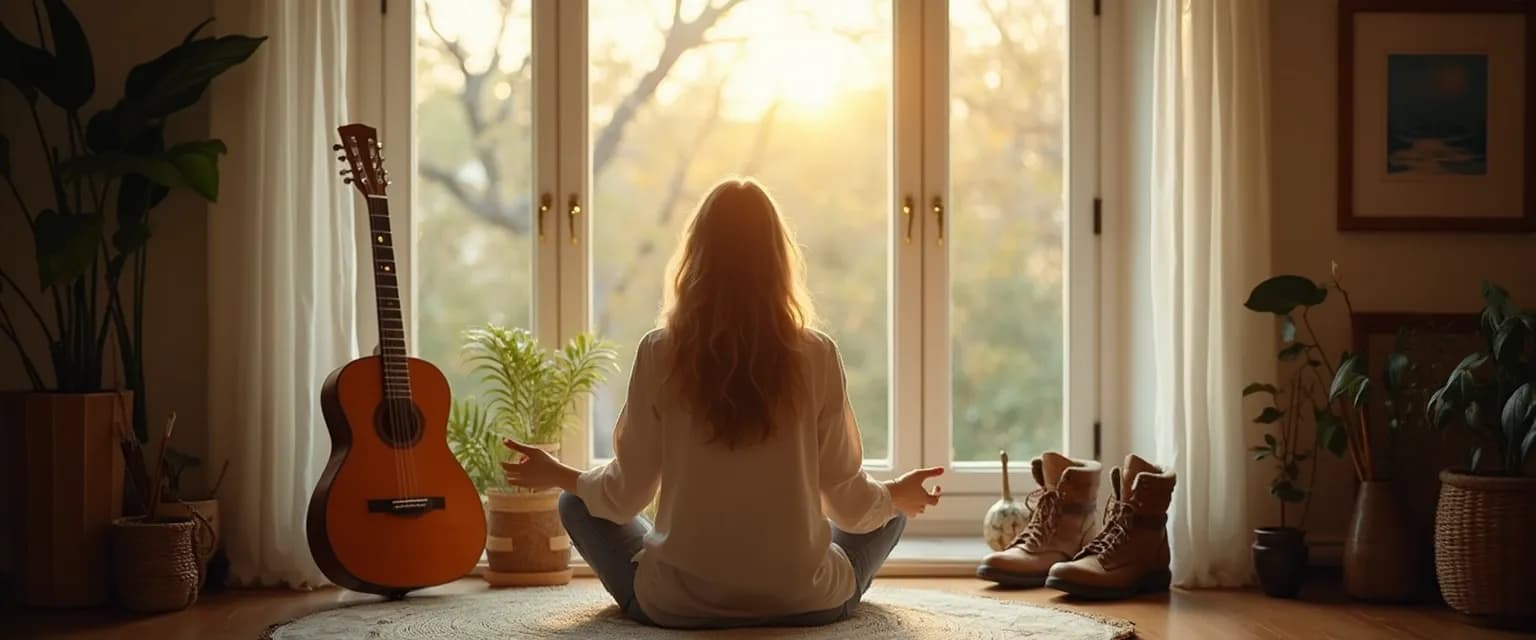Healing From a Breakup: Rediscover Yourself Through New Hobbies
Healing from a breakup often feels like navigating uncharted territory. One moment you're part of a duo, and the next, you're suddenly solo again—leaving you wondering who you are outside that relationship. This identity shift can be jarring, but there's a powerful path forward that neuroscience supports: exploring new hobbies and passions. When you engage in novel activities during breakup recovery, your brain actually forms new neural pathways that help redirect your thoughts away from heartache and toward discovery. Research shows that people actively pursuing new interests recover from romantic loss significantly faster than those who don't.
The beauty of hobby exploration isn't just distraction—it's transformation. As you learn new skills while managing relationship anxiety, you're literally rewiring your brain for healing from a breakup. These new neural connections become the foundation for your next chapter—one filled with self-discovery rather than dwelling on what's been lost.
When your heart is heavy, finding something that sparks joy might seem impossible. Yet that's precisely when developing new passions can be most therapeutic. The key is starting small and being gentle with yourself throughout the healing process.
How New Hobbies Accelerate Healing From a Breakup
The science behind hobby therapy is fascinating. When you immerse yourself in a new activity, your brain releases dopamine—the feel-good neurotransmitter that's often depleted during breakup recovery. This natural mood booster helps counteract the emotional pain while creating positive neurological changes that support healing from a breakup.
Unlike unhealthy coping mechanisms (excessive drinking, rebound relationships), hobbies provide healthy distraction without avoidance. You're not running from feelings—you're channeling them into something constructive. This distinction makes hobby exploration particularly effective for emotional processing.
Take Maya, who discovered rock climbing three months after her five-year relationship ended. "Scaling those walls became a metaphor for my recovery," she explains. "Each time I reached a new height, I wasn't just building physical strength—I was rebuilding my sense of self." Like Maya, many find that breakup recovery activities help construct a new identity separate from their former relationship.
Another powerful aspect of hobby exploration is the social connections it facilitates. Joining a pottery class or hiking group introduces you to people who know you only as you—not as half of a former couple. These fresh connections support healing from a breakup by reinforcing your individual identity and creating community around shared interests rather than shared history.
Finding the Right Hobbies for Healing From a Breakup
Not all therapeutic hobbies work equally well for everyone. Your personality type and emotional state play significant roles in determining which activities will best support your healing journey. Introverts might find solace in solo pursuits like painting or gardening, while extroverts often thrive in group settings like improv classes or team sports.
Creative pursuits offer unique benefits during breakup recovery. Activities like writing, music, or art provide emotional outlets that help process complex feelings without requiring direct confrontation. The symbolic expression often unlocks emotional understanding that logical thinking cannot access.
Physical activities deserve special mention for their dual benefits. Exercise naturally boosts endorphins while providing tangible progress markers during healing from a breakup. Whether it's yoga, running, or dance, movement-based hobbies help reconnect you with your body while releasing tension stored there.
For those feeling socially disconnected, community-based hobbies offer gentle reentry into social spheres. Volunteer work, book clubs, or cooking classes provide structured interaction centered around shared interests, making social engagement feel safer during vulnerable healing periods. These settings support building confidence without dating pressure.
Your Roadmap to Healing From a Breakup Through Passion Discovery
Ready to begin your hobby exploration journey? Start by creating a curiosity list—note anything that's ever sparked your interest, even fleetingly. Don't overthink or judge your ideas; this is about possibility, not perfection.
Next, commit to trying three new activities within the next month. Keep initial sessions short and expectations low—you're experimenting, not committing for life. Remember that resistance is normal during emotional recovery; acknowledge it, then take that small first step anyway.
The most effective healing from a breakup through hobbies happens when you approach new activities with playfulness rather than pressure. You're not seeking mastery—you're seeking moments of engagement that gradually expand your world beyond heartache. As you discover new passions, you're not just filling time—you're building the foundation for a richer, more authentic life defined by what lights you up rather than who left you behind.




